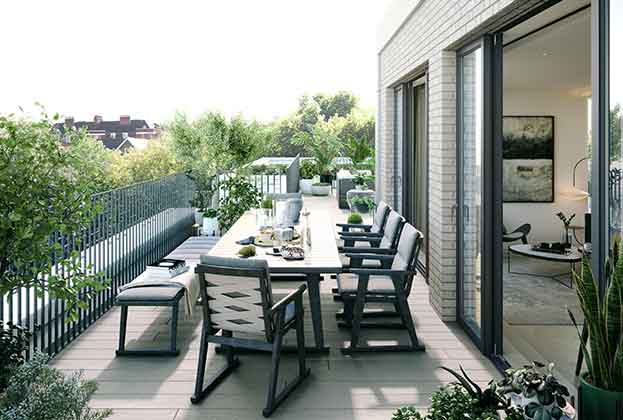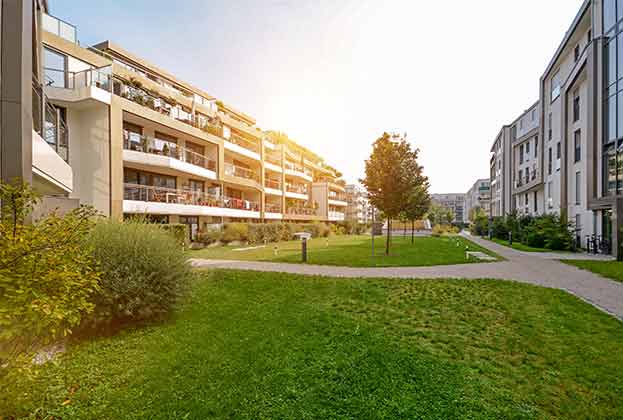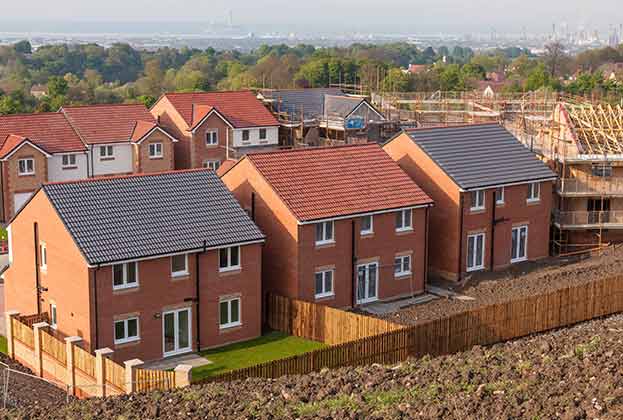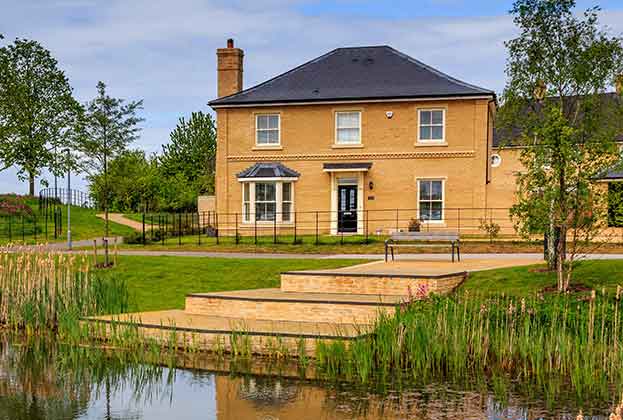To attract new buyers who can afford energy efficient homes, developers need to adopt measures that reduce the environmental impact of housing
The sustainability of our homes continues to creep up the priority list for many buyers. Therefore, to continue to attract new build buyers, developers will need to deliver more efficient homes. It can also help attract more investment (The right fit for the future).
New homes are on average 33%* more energy-efficient than second-hand homes, and tend to produce 66% less CO2 to run. But while energy efficiency is certainly desirable, it comes at a cost. Although the range of Energy Performance Certificate (EPC) ratings for new homes is very narrow, the trends are clear.
More efficient homes tend to be more expensive. A new £500,000 house has an EPC rating 1.3 points higher than a new £250,000 house. At the more affordably priced end of the market there is less scope to spend more on the higher build costs needed to create a more energy-efficient home. As a consequence, we see younger and less affluent buyers purchasing less efficient new build homes.
Buyers are paying more for energy efficiency, with purchasers tending to stretch their house price to income ratio to afford more efficient homes, according to our analysis. This may be because they have more equity to enable them to do so and they are purchasing higher-priced homes. Those with a house price to income ratio of 10 buy a home with a 1.1 point higher EPC rating than those buying a home priced at just three times their income.
The Government is keen to promote greater energy efficiency in housing. The planning white paper states that from 2025, new homes will be expected to produce 75–80% lower CO2 emissions compared to current levels, with heat pumps and better insulation part of the solution to the Future Homes Standard.
This will push up build costs and put pressure on land values, but is essential to reach these sustainability goals without compromising already stretched affordability.
Homes delivered using modern methods of construction (MMC) typically have higher energy efficiency ratings and have been shown to use 20–30% less energy to heat. In fact, eco MMC house-building specialist Etopia has been the first to be rated as better than zero carbon, with an EPC score of 103. What’s more, MMC can also reduce construction waste and use less energy during construction.
Aside from MMC, the rising number of cleantech start-ups appearing is also promising for finding new solutions to creating more efficient building methods and homes.
The planning white paper states the intention for homes built under its guidance to not need retrofitting – rather they should be zero carbon ready by 2025. Futureproofing, building in flexibility to adapt to future needs, is difficult, but efforts to do so will likely increase a site’s long-term resilience. A more efficient home is cheaper to run, aligned with governmental and industry goals, and generally more appealing to buyers.
Read the articles within Spotlight: Delivering new homes resiliently below.
.jpg)



